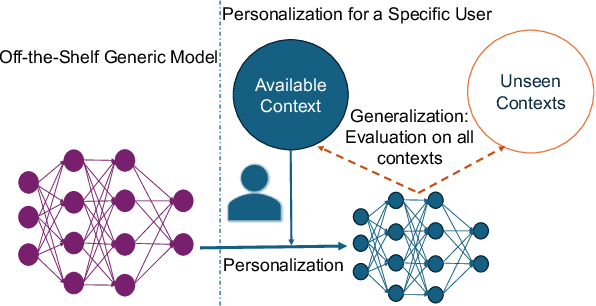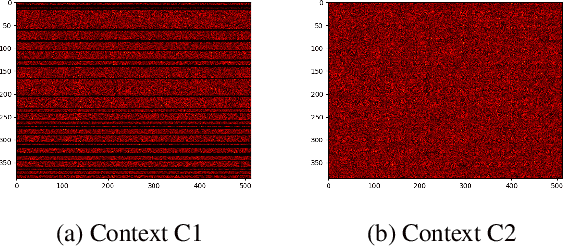CRoP: Context-wise Robust Static Human-Sensing Personalization
Paper and Code
Sep 26, 2024



The advancement in deep learning and internet-of-things have led to diverse human sensing applications. However, distinct patterns in human sensing, influenced by various factors or contexts, challenge generic neural network model's performance due to natural distribution shifts. To address this, personalization tailors models to individual users. Yet most personalization studies overlook intra-user heterogeneity across contexts in sensory data, limiting intra-user generalizability. This limitation is especially critical in clinical applications, where limited data availability hampers both generalizability and personalization. Notably, intra-user sensing attributes are expected to change due to external factors such as treatment progression, further complicating the challenges.This work introduces CRoP, a novel static personalization approach using an off-the-shelf pre-trained model and pruning to optimize personalization and generalization. CRoP shows superior personalization effectiveness and intra-user robustness across four human-sensing datasets, including two from real-world health domains, highlighting its practical and social impact. Additionally, to support CRoP's generalization ability and design choices, we provide empirical justification through gradient inner product analysis, ablation studies, and comparisons against state-of-the-art baselines.
 Add to Chrome
Add to Chrome Add to Firefox
Add to Firefox Add to Edge
Add to Edge